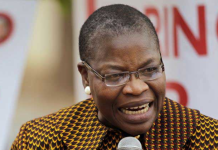By barr. emperor n. iwuala, 08037247295
A town union is an association formed by members of a particular community for the socio-economic development of that community. Accordingly, town union collaborates with traditional administration, government at all levels and sometimes non-governmental agencies to achieve its aim.
Town unions existed in communities in Nigeria even before colonialism. Interestingly, when the colonial masters came to the country, they also associated with town unions and made adequate use of them to foster their mission.
With the country’s independence and the constitutional provision on Freedom of Association, town unions became stronger institutions. Also, with the promulgation of the Companies and Allied matters Act, town unions are now incorporated as legal persons. Today, many town unions are body corporates and a good number also have branches in the Diaspora. .
Interestingly, because of the great influence town unions have in the various communities in the country, government and politicians also like to control them. Consequently, states have laws which have given town unions added obligations and some elements of checks and control.
Nevertheless, not minding the extent of legal control of town unions, there are still some reasonable level of independence and freedom in the establishment and activities of town unions in the country. This is because, town unions are sacred institutions fully protected under Section 40 of the country’s constitution. The section provides that ‘every person shall be entitled to assemble freely and associate with other persons, and in particular, he may form or belong to … associations for the protection of his interest’.
Accordingly, town unions in Imo State are regulated by the Imo State Traditional Rulers and Autonomous Communities Law 2006 (As Amended). Interestingly, in regulating these town unions, this law still preserves the sanctity and constitutionally guaranteed rights of the unions. Also, the law gives town unions right to have their own bye-laws, conduct elections of their officers and run their affairs according to their individual bye-laws without much external influence.
The above was the status town unions were in the state before the Rochas Okorocha Administration through an official press announcement, claimed to have proscribed all town unions in the state.
The Governor in partnership with the state legislature also enacted a law creating the Community Governing Council (CGC) to replace the town unions. Presently, appointees of the state governor are running the CGC as against elected officers. In a bid to achieving its aim, the government has promised to make available the sum of =N1 Million to each community that would provide =N=250,000 counterpart fund. This is what some analysts have described as a ‘dangling carrot to annihilate town unions in Imo State’.
Ironically, the state law on town unions was not repealed. Therefore, the state currently, has two different existing laws creating two different systems for community administration in every autonomous community in the state.
The above scenario has created a lot of confusions. The status and allegiance of the Women wing and Diaspora branches of town unions no longer know how best to relate with the CGC.
Consequently, some communities have refused to give up their town unions while some play along because of the promised monetary grant and fear of government’s victimization.
From the legal perspective, a state governor has no right to proscribe a town union as Governor Rochas Okorocha did. It is against the fundamental right constitutional provision on Freedom of Peaceful Assembly and Association. More so, the law on town unions in the state as said earlier is still subsisting and in force. I also know that there is no law court in the country where the Governor will admit that he proscribed town unions in the state.
According to the Sociological jurisprudence, people tend to believe and accept a practice or rule when such law flows from them and reflects their circumstances. Town union is a product of the people and reflects the peculiarities of the communities very well. It is a product of democracy which the world is striving at.
Therefore, Imo State Government’s supposed proscription of the age-long universally practised town union system and take-over of day-to-day administration of communities manned by government officials and appointees is not only totalitarian, draconic and undemocratic but also unconstitutional and against the culture and tradition of Ndigbo.
A lot of communities today have undertaken gigantic projects and programmes with little or no government support and control. However, with the Imo State Government running the communities now with its preferred officials, the usual sense of responsibility and commitment among members of the community is likely to wane. Since many appointees into the CGC are perceived loyalists and members of the Governor’s political party, the CGC also cannot be free from political bickering and accusations of partisanship. Some people have even started rumouring that the CGS is the Governor’s political structure against the on-coming elections.
In summery, CGC is so strange to Imo people. It might not stand the test of time in and may not likely going to survive after the regime of Governor Rochas Okorocha.
Nevertheless, the government should make sure that town unions are free from totalitarian control by government and politics. It should leave certain community activities and details in the hands of the people without undue influence. It may act as a partner, supervisor or umpire where and when necessary.
However, if the government is really sincere in doing projects in the communities, it can liaise and partner with the communities like World Bank, Federal Government and other donor agencies do.
Barr. Emperor Nnabuihe Iwuala (Ksc.)
emperoriwuala@ yahoo.com











